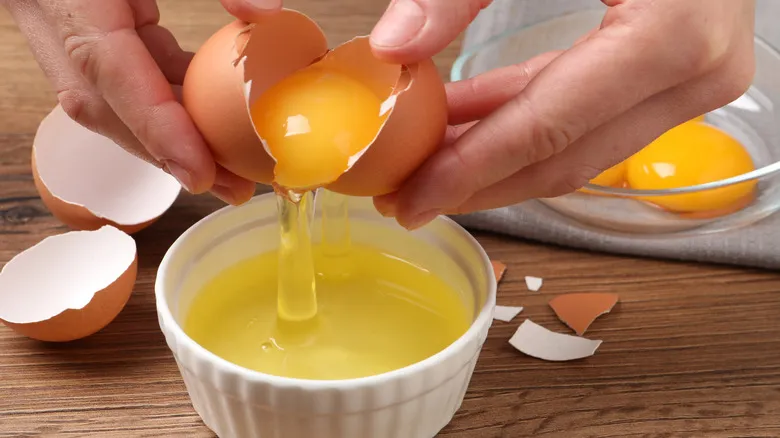How to freeze egg yolks
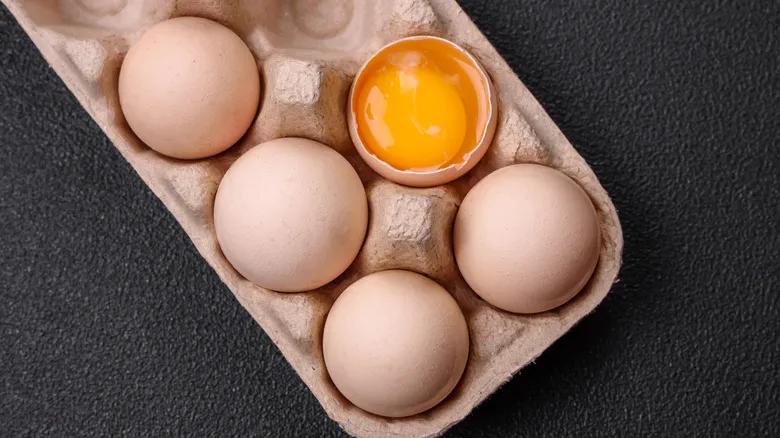
When left alone, the proteins in egg yolks can transform into a uniform gel when frozen and then thawed. However, as Melissa Clark notes in her New York Times column, there's an easy solution. Just sprinkle some salt over the yolks before whisking them. The salt aids in freezing the yolk components more quickly and helps maintain their slightly varied texture, ensuring they remain yolk-like upon thawing instead of turning into a uniform gummy mass.
You don't need a lot of salt—about a quarter to half a teaspoon per egg is sufficient, though a generous sprinkle works well without making it overly salty. If you choose to freeze your egg yolks in a bowl or similar container, be aware that they can be tricky to remove, so make sure to wrap the container securely to prevent freezer burn. Alternatively, Clark recommends freezing individual egg whites and yolks in ice cube trays. Once frozen, they can be easily popped out and transferred to freezer bags for later use.
Frozen eggs are best used within six months, as their quality starts to decline after that period. Always remember to wash your hands thoroughly whenever handling raw eggs.
Thawing and using your egg yolks
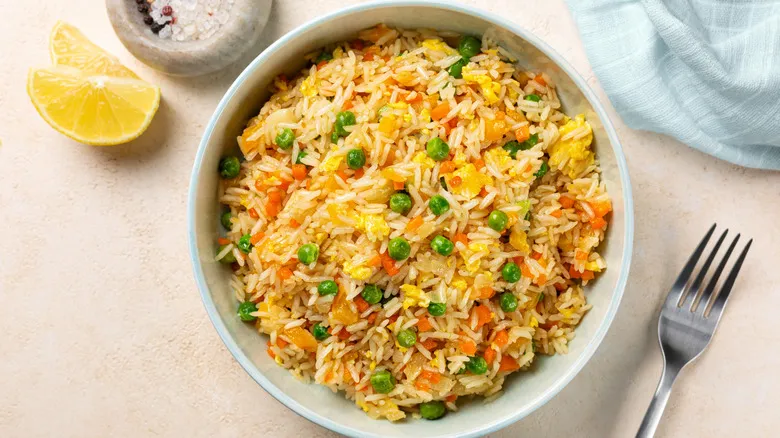
When you're ready to use your frozen eggs, transfer them to the refrigerator to thaw overnight. It's important not to leave eggs out at room temperature for more than two hours, so thawing them on the countertop is not advisable. However, if you need to use them right away, you can place them in a warm water bath for quicker thawing.
If you've combined multiple yolks before freezing, approximately one tablespoon is equivalent to one yolk, while two tablespoons of egg white can substitute for the remaining egg components. This is where Melissa Clark's ice cube tray method is particularly useful, as it allows you to thaw only the amount of yolk you require.
While frozen egg yolks may not be ideal for delicate dishes like soufflés or creamy custards—where freshness and texture are crucial—they work wonderfully in recipes where the yolks contribute more to flavor than to structure. For instance, you can add them to fried rice or scramble them with some of your thawed egg whites. Just keep in mind that you've already salted the yolks, so be sure to reduce any additional salt in your cooking to balance the flavors.
Recommended
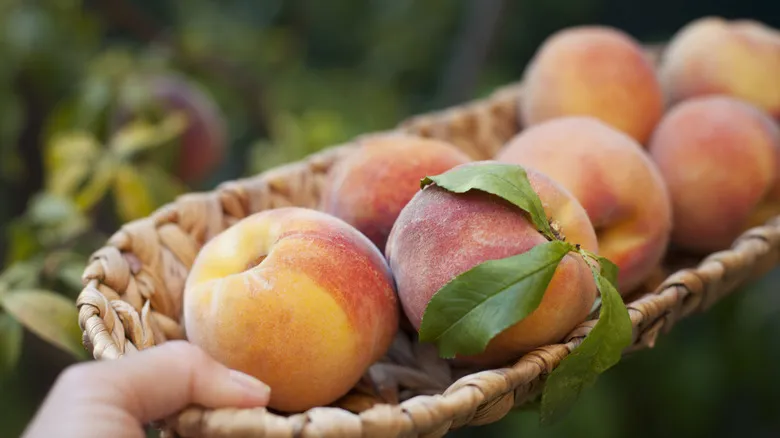
Why Stone Fruits Should Be Stored At Room Temperature, But Berries Shouldn't
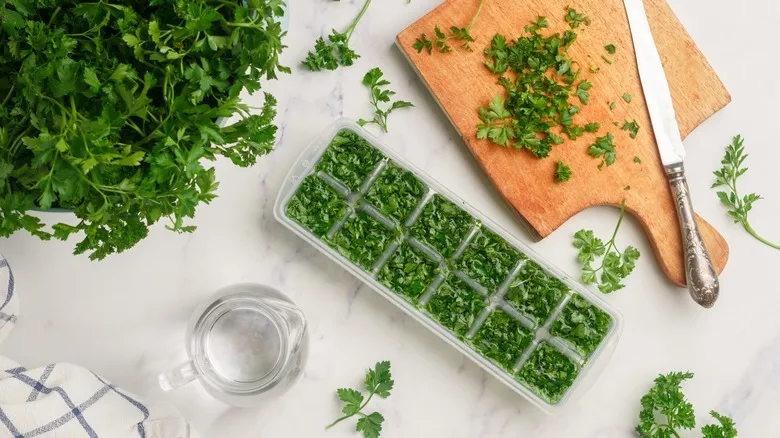
Freeze Your Fresh Herbs In An Ice Cube Tray For Ultimate Freshness
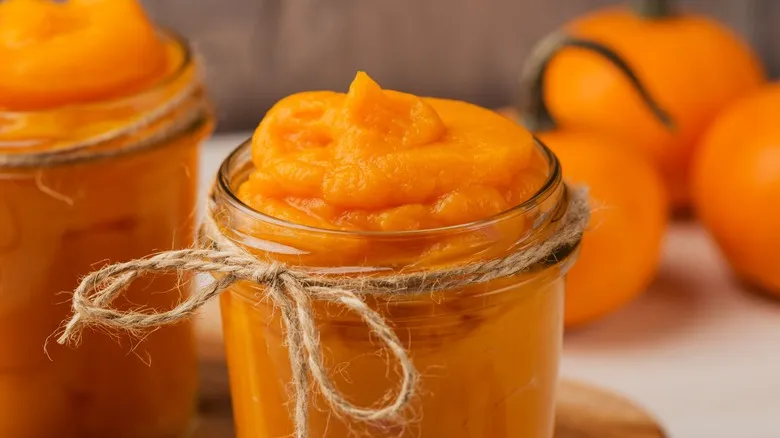
How Long Does Canned Pumpkin Last?
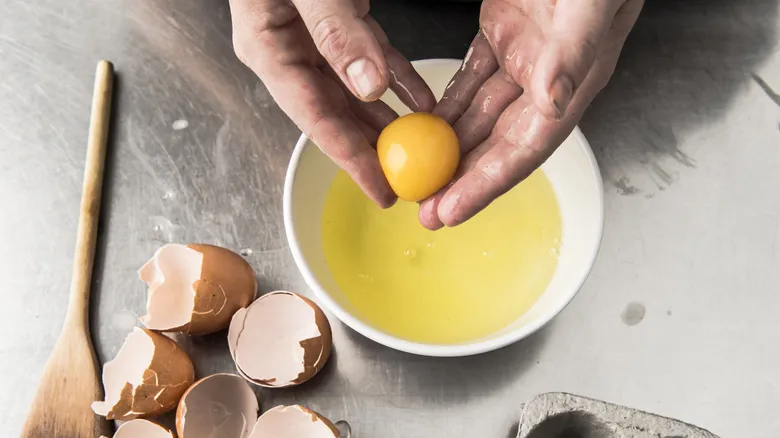
The Right Way To Freeze Egg Whites
Next up

